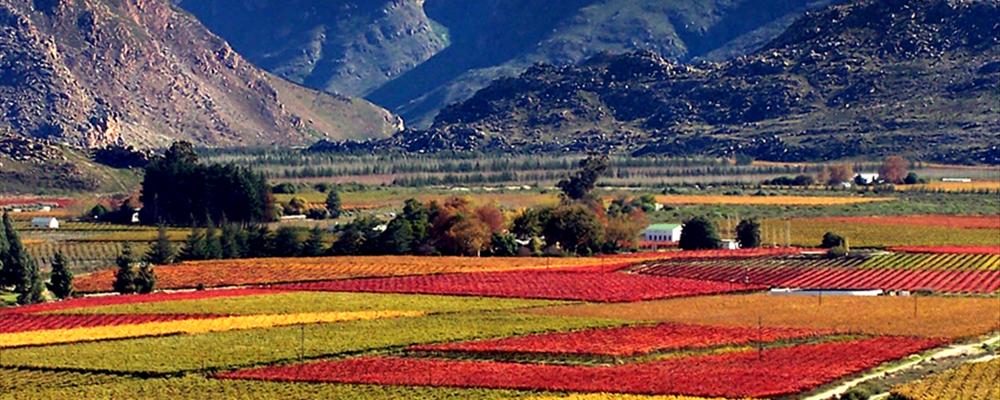
South Africa
( 1 user review )South Africa is located at the southern tip of Africa. It is bordered by Namibia, Botswana, Zimbabwe, Mozambique, Swaziland and Lesotho (which is completely surrounded by South Africa). It is a vast country with widely varying landscapes and has 11 official languages, as well as an equally diverse population. South Africa is renowned for its wines and is the world's largest producer of gold. South Africa has a strong economy and is an influential player in African politics. In 2010, South Africa will host the first Football World Cup to be held on the African continent.
Understand
If you want to travel in southern Africa then South Africa is a good place to start. While you can fly into any country in southern Africa, most flights will route through South Africa anyway. South Africa is also a good place to get used to traveling in the region (though some would argue that Namibia is better for that). Of course South Africa is not only a jumping off point, it is itself a superb destination rich in culture, fauna & flora and history.
Outsiders' views of South Africa are colored by the same stereotypes as the rest of Africa. Contrary to popular belief, South Africa is not devastatingly poor with an unstable government that is rapidly going to pot. Although the rural part of South Africa remains among the poorest and the least developed parts of the world and poverty in the townships can be appalling, progress is being made. The process of recovering from apartheid, which lasted almost 46 years, is quite slow. In fact, South Africa's United Nations Human Development Index which was slowly improving in the final years of apartheid, has declined dramatically since 1996, largely due to the AIDS pandemic, and poverty levels appear to be on the increase. South Africa boasts a well-developed infrastructure and has all the modern amenities and technologies, much of it developed during the years of white minority rule. The government is stable, although corruption is common. The government and the primary political parties generally have a high level of respect for democratic institutions and human rights, although the government's support of the misrule of neighboring Zimbabwe's Robert Mugabe has raised questions about its commitment to human rights and even democracy itself.
History
The tip of Africa has been home to the Khoisan (collective name for Hottentot(Koi) and Bushmen(San)) people for thousands of years. Their rock art can still be found in many places throughout South Africa. Bantu tribes started expanding into Southern Africa around 2500 years ago and by around 500 AD the different cultural groups as we know them today had been established in the area.
The first permanent European settlement was built after the Dutch East India Company reached the Cape of Good Hope in April 1652. In the late 1700's the Boers (the settling farmers) slowly started expanding into the interior. In 1795 Britain took control of the Cape and in 1820 a large group of British Settlers arrived in the region. In 1835 large numbers of Boers started out on the Groot Trek into the interior after becoming dissatisfied with the British rule. In the interior they established their own republics after a number of bloody conflicts with the local population.
Two wars for control over the region were fought between the Boers and the British in 1880 and 1899. This was when the British contained the Boer population in the first modern concentration camps.
The Union of South Africa was formed in 1910, consolidating the various Boer republics and British colonies. From this, the Republic of South Africa was formed in 1961. Non-Europeans were largely excluded in all these political changes and even with the creation of the Union were not given the right to vote. From 1948 additional apartheid laws were introduced to erode the right of the black population further. Since then, South Africa (at least the government itself), became almost synonymous with fascism, racism, and many other pejorative descriptions. In the years to follow, the country, despite having strong economic growth until the 1980s, experienced frequent uprisings and other social disturbances in response to the apartheid laws. Among them: weapons embargoes, being banned from the Olympic Games, and deliberate violations of the laws by black radicals.
In 1992, 68% of the voting white population voted in a referendum to have the apartheid system abolished. This was quickly followed by a new constitution in 1993 and the first fully democratic election in 1994.
Place names
Many region, city, street and building names in South Africa have been changed after the end of apartheid and some of them are still being changed today. These changes can sometimes lead to confusion as many of the new names are not yet well known. This travel guide will use the official new names, but also mention the previous names where possible.
Climate
The climate in South Africa ranges from desert and semi-desert in the north west of the country to sub-tropical on the eastern coastline. The rainy season for most of the country is in the summer, except in the Western Cape where the rains come in the winter. Rainfall in the Eastern Cape is distributed evenly throughout the year. Winter temperatures hover around zero, summers can be very hot, in excess of 35 Celsius in some places.
The South African Weather Service provide up to date weather information, forecasts and radar imaging.
Public Holidays
The public holidays in South Africa are:
-
January 1, New Years' Day
-
March 21, Human Rights Day
-
Easter weekend, (
-
April 27, Freedom Day
-
May 1, Workers Day
-
June 16, Youth Day
-
August 9, Woman's Day
-
September 24, Heritage Day
-
December 16, Day of Reconciliation, (**see Bloodriver**)
-
December 25, Christmas Day
-
December 26, Day of Goodwill If a public holiday falls on a Sunday, then the Monday following will be a holiday
School holidays occur early December to middle January, early in April, middle June to middle July and late September. Most South Africans go on leave during these times and accommodation will be harder to find.
Tourism Offices
South African Tourism operates a number of offices in other countries. You might wish to contact the office in your country for any additional information or assistance
-
Australia, +61 2 9261-5000, +61 2 9261-5000, Level 1, 117 York Street, Sydney
-
France, +33 1 456-10197, +33 1 456-10197, 61 Rue La Boetie, 75008 Paris
-
Germany, +49 69 929-1290, +49 69 929-1290, Friedensstrasse 6-10, Frankfurt
-
Italy, +39 02 4391-1765, +39 02 4391-1765, Via XX Settembre 24, 3rd Floor, Milano
-
Japan, +81 33 478-7601, +81 33 478-7601, Akasaka Lions Building, 1-1-2 Moto Akasaka, Minato-Ku, Tokyo
-
Netherlands, +31 20 471-3181 , +31 20 471-3181 , Jozef Israëlskade 48 A, Amsterdam
-
UK, +44 20 8971-9350, +44 20 8971-9350, No. 5 & 6 Alt Grove, Wimbledon, London
-
USA, +1 212 730-2929, +1 212 730-2929, 500 Fifth Avenue, 20th Floor, Suite 2040, New York
Regions
South Africa is divided into 9 provinces, they are:
- Gauteng (Pretoria) - Pretoria the administrative capital of the country. Johannesburg is the seat the provincial government, also the economic heart of Africa and the most common entry point into Southern Africa.
- Western Cape (Cape Town) - Cape Town, the mother city, the legislative capital and seat of Parliament, with famous landmarks as Table Mountain and the Cape of Good Hope. The winelands near Stellenbosch, the Whale Coast along the Overberg, Agulhas where the Atlantic and Indian Ocean meet and the Cape Floral Region. The Garden Route, one of the top destinations, running along the Southern Coast from Mossel Bay to Port Elizabeth, with cities like Knysna and ostrich capital Oudtshoorn, .
- Eastern Cape (Bhisho) - The remainder of the Garden Route, the former homelands, the Wild Coast, spectacular coastlines without the tourist crowd. Superb beaches in Port Elizabeth and Jeffreys Bay, the surfing mecca of South Africa. Great parks like Addo Elephant National Park and Tsitsikamma National Park.
- Northern Cape (Kimberley) - Capital Kimberley, famous for its diamonds and the "Big Hole". Biggest province with fewest people, Upington is the second big city, a good base when exploring the Kalahari desert, Kgalagadi Transfrontier Park and the Augrabies Falls on the Orange River. Also Ai-Ais/Richtersveld Transfrontier Park and the semi-desert Karoo.
- Free State (Bloemfontein) - Capital Bloemfontein which also hosts the Supreme Court of Appeal, the highest court in non-constitutional matters (the Constitutional Court is in Johannesburg since 1994). The world heritage site Vredefort Dome, remnants of the largest and oldest meteorite impact crater.
- KwaZulu-Natal (Durban) - Capital Durban, the largest city in the province and second largest in South Africa and popular coastal holiday destination for South Africans. The Drakensberg mountain range, if you like hiking and also the Tugela Falls, worlds second highest waterfall.
- North West (Rustenburg) - Capital Rustenburg, famous for Sun City and Pilanesberg Game Reserve.
- Mpumalanga (Nelspruit) - Capital Nelspruit, gateway to Mozambique and southern section of the Kruger National Park. The Drakensberg Escarpment with the Blyde River Canyon is the third largest Canyon in the world.
- Limpopo (Polokwane) - Capital Polokwane (formally known as Pietersburg) a good jump off point for visits to the northern parts of the Kruger National Park and Zimbabwe.
Territories
-
Marion Island
-
Prince Edward Islands
Cities
-
Pretoria – The administrative capital of the country
-
Cape Town – The legislative capital and seat of Parliament. A world-class city named for its proximity to the Cape of Good Hope. Also within a stone's throw of South Africa's winelands.
-
Bloemfontein – Location of the Supreme Court of Appeal, the highest court in non-constitutional matters. The Constitutional Court in Johannesburg became the highest court in constitutional matters in 1994.
-
Durban – Largest city in KwaZulu-Natal ,second largest in South Africa and popular coastal holiday destination for South Africans.
-
Johannesburg – The economic heart of Africa and the most common entry point into Southern Africa.
-
Polokwane – Capital of Limpopo (formally known as Pietersburg) and a good jump off point for visits to the northern parts of the Kruger National Park and Zimbabwe.
-
Port Elizabeth – Coastal city in the Eastern Cape with Addo Elephant National Park located close by.
-
Kimberley -- Capital of the Northern Cape Province. Famous for its diamonds and "Big Hole".
-
Upington – Located in the arid Northern Cape province, this city is a good base when exploring the Kalahari desert and the many national parks located in the Northern Cape.
Other destinations
National Parks
South Africa is a paradise for anyone interested in natural history. A wide range of species (some potentially dangerous) may be encountered in parks, farms, private reserves and even on the roads.
-
The Kruger National Park is exceptionally well managed and a favorite tourist destination.
-
Kgalagadi Transfrontier Park in the heart of the Kalahari desert with wide open spaces and hordes of games including the majestic 'Gemsbok'. This is the first park in Africa to cross political borders.
-
There are also a large number of smaller parks, like the Hluhluwe-Umfolozi Park, Addo Elephant National Park, Pilanesberg National Park or the iSimangaliso Wetland Park.
See African Flora and Fauna and South African National Parks for additional information. There are hiking trails available in almost all the parks and around geographical places of interest, Hiking in South Africa contains information on those.
UNESCO_World_Heritage_List#South_Africa|UNESCO World Heritage Sites
-
The Cradle of Humankind, , near Johannesburg is a must see for anyone interested in where it all started.A large collection of caves rich in hominid and advanced ape fossils.
-
Robben Island just off the coast from Cape Town where Nelson Mandela was imprisoned for many years.
-
The Cape Floral Region in the Western Cape
-
Ukhahlamba Drakensberg Park, , for its landscape, biodiversity and rock art.
-
Vredefort Dome, remnants of the largest and oldest meteorite impact crater.
Get in
Visas
Most nationalities get up to 3 months entry on arrival. Check with the Home Affairs and your travel agent whether you need to prearrange a visa. Do not show up without a visa if you are required to have one, as visas will not be issued at points of entry. If needed, you can extend your visa in South Africa. With an extension the total amount of time you are allowed to stay is 6 months. Additional information as well as Visa application forms can be found at the Department of Home Affairs , ph: +27 (0)12 810 8911
The Department of Home Affairs is notoriously inefficient, so make sure to apply for visas and visa extensions as early as possible.
Make sure you have 2 blank pages back to back in your passport and that it is valid for at least 30 days after your intended date of departure, or you will be sent back! Make sure you have a return ticket available or they will send you back. If you need to pick up a ticket at the airport have the flight number and details handy and speak with the customs guy, they should check your story out and let you in (be firm). Be wary of arriving with a damaged passport as new security measures might trip up your entry.
By plane
South Africa has 10 international airports, the two major ones being Cape Town International and OR Tambo International Airport in Johannesburg.Durban International Airport is the third biggest airport. Regular Flights from and to: Blantyre, Cairo, Gaborone, Dar es Salaam, Harare, Lilongwe, Livingstone, Luanda, Lusaka, Kinshasa, Maputo, Manzini, Maun, Mauritius, Nairobi, Victoria Falls and Windhoek.
Direct flights also arrive from major European centres, including: Amsterdam, Athens, Madrid, London, Paris, Istanbul, Frankfurt, Munich, Zurich and Lisbon. There are also direct flights from Abu Dhabi, Dubai, Doha, New York, Atlanta, Washington, D.C., Buenos Aires, Mumbai, Hong Kong, Kuala Lumpur, Sao Paulo, Singapore, Sydney and Perth. You may also want to have a look at Discount airlines in Africa.
See Air travel in South Africa for detailed information.
By car
Should you be entering from one of the other countries in Southern Africa you might want to do so by car. South Africa operates a number of land border posts between itself and immediately neighboring countries. The more commonly used ones are:
Botswana border
- Skilpadsnek, +27 (0)18 366-1469, Open 6AM to 10PM, On the N4, 54km from Zeerust.
Lesotho border
-
Maseru Bridge, +27 (0)51 924-4004, Open 24 hours, 15km from Ladybrand on the N8 towards Maseru.
-
Ficksburg Bridge, +27 (0)51 933-2760, Open 24 hours, Just outside Ficksburg
-
Sani Pass, +27 (0)51 430-3664, 8AM to 4PM, In the KwaZulu-Natal Drakensberg park.
Mozambique border
-
Lebombo, +27 (0)13 790-7203, 6AM to 10PM, On the N4 between Nelspruit and Maputo
-
Kosi Bay, +27 (0)35 592-0251, 8AM to 4PM, R22 between Hluhluwe and Ponta do Ouro
Namibia border
-
Nakop, +27 (0)54 571-0008, Open 24 hours, 132 km from Upington on the N10 towards Ariamsvlei
-
Vioolsdrift, +27 (0)27 761-8760, Open 24 hours, On the N7 north of Springbok
Swaziland border
- Oshoek, +27 (0)17 882-0138, 7AM to 10PM, 120km from Ermelo on the N17 towards Mbabane
Zimbabwe border
- Beit Bridge, +27 (0)15 530-0070, Open 24 hours, On N1 approximately 16 km north of Messina
Open times are often extended during South African holidays.. For a full list of entry ports or any additional information see the South African Border Information Service or contact them on +27 (0)86 026-7337.
By boat
Most of the larger cruise lines, such as Princess Cruises offer Cape Town as one of their destinations, but you can also try something different
- RMS St Helena , This passenger/cargo ship is the last working Royal Mail Ship and stops at Cape Town on its way to St Helena.
Get around
By plane
South Africa has a well established domestic air travel infrastructure with links between all major centers.
See Air travel in South Africa for detailed information.
By car
Note that fuel cannot be bought on a normal credit card, only special Garage Cards issued by a South African bank are accepted at petrol stations. Most garages do however have ATM's on the premises. Visa Electron and other debit cards are accepted at most fuel stations.
General
Road Safety Advice for foreigners driving in South Africa
All measurements use the metric system; distances on road signs are in kilometers (1 mile = 1.6 km) and fuel is sold by the litre (1 US gallon = 3.8 litres).
To acquire a car in South Africa there are basically three options, you can hire a car, buy one or use the so-called buy-back option. Hiring a car is fairly easy and bookings can be made online and in all major cities, although you can get better rates by calling some of the smaller operators. Buying a car takes a bit more work (Roadworthy license, registering the car, insurance), but there is a lively used car market in South Africa. The third option is a combination of both, as you buy a car with a guarantee that the rental company will buy-back your car at the end of the contract.
Most cars in South Africa have manual transmissions and the selection of second-hand automatics may be limited.
Rules of the Road
Road traffic in South Africa (and its neighboring countries) drives on the left.
Make sure you understand the South African road signs.
A special kind of crossing is the 'four way stop' where the car that stops first has right of way.
You will not encounter many traffic circles, but when you do, take special care since the general attitude of South African drivers is that traffic circles do not constitute a traffic management roadway structure. They do not use their indicators in a safe and predictable fashion, if at all.
A noticeable number of South Africans tend to ignore speed limits. They are prone to selfish or aggressive driving behavior, such as tailgating and hooting. On multi-lane roadways, the principle of keep-left, pass right, is often not adhered to.
Left (or right) turns on red at traffic lights are illegal. You will, however, find traffic lights and 'four way stops' that have an accompanying yield sign explicitly permitting a left turn.
The wearing of seat belts is compulsory. The front seat occupants of a car are required to wear seat belts while traveling, and for your own safety it is recommended that those in the rear seats do so as well. If you are caught without you will be subject to a fine.
The use of hand-held cell (mobile) phones whilst in control of a vehicle is illegal. If you need to speak on your cell phone use either a vehicle phone attachment or a hands-free kit. Or even better (and safer), pull off the road and stop. NOTE: only pull off the road at safe places, eg a petrol station. Pulling over and stopping along roads can be dangerous. 99% of petrol stations are open 24hr.
Safety
South Africa has a high rate of traffic accidents. You should at all times exercise extra caution when driving, especially at night in urban areas. Watch out for unsafe drivers (minibus taxis), poor lighting, cyclists (many of whom seem not to know about the "drive on the left" rule) and pedestrians (who are the cause of many accidents, especially at night). When driving outside of the major cities you will often encounter animals, wild and domestic, in or near the roadway. The locals tend to herd their cattle and goats near the road. If you see an animal on or by the road, slow down, as they are unpredictable. Do not stop to feed wild animals!
Should you find yourself waiting at a red traffic light late at night in an area where you do not feel safe, you could (illegally) cross over the red light after first carefully checking that there is no other traffic. If you receive a fine due to a camera on the traffic light you can sometimes have it waived by writing a letter to the traffic department or court explaining that you crossed safely and on purpose, due to security reasons. The fact remains that, for whatever reason, you have broken the law. Do not make a habit of this.
When stopped at a traffic light at night always leave enough room between your car and the car in front of you so you can get around them. It is a common hijacking maneuver to box your car in. This is especially prevalent in the suburbs of Johannesburg.
So far as possible, and especially when driving in urban areas, try not to have any belongings visible inside the car - keep them out of sight in the glove boxes or in the boot (trunk). The same applies, but even more so, when parking your car. It is also considered safe practice to drive in urban areas with the car windows closed and the doors locked. These simple precautions will make things less attractive for potential thieves and criminals.
As you would do in any other country, always be alert when driving. The safest way is to drive defensively and assume that the other driver is about to do something stupid / dangerous / illegal.
Road System
Speed limits are usually clearly indicated. Generally, speed limits on highways are 120km/h, those on major roads outside built-up areas are 100 km/h, those on major roads within built-up areas are 80km/h and those on normal city/town roads are 60 km/h. But beware - in some areas the posted speed limits may change suddenly and unexpectedly.
The roads within South Africa, connecting most major cities, and between its immediate neighbors are very good. There are many national and regional road connecting the cities and larger centers, including the N1 running from Cape Town through Johannesburg and Pretoria up to Harare, Zimbabwe, the N2 running from Cape Town to Durban, which passes through the world-famous Garden Route near Knysna, and the N3 between Durban and Johannesburg.
Some portions of the national roads are limited access, dual carriage freeways (the N3 between Johannesburg and Durban is freeway almost all the way) and some sections are also toll roads with emergency assist telephones every couple of kilometers. Toll roads generally have two or more lanes in each direction.
The large fuel companies have rest stops every 200-300 km along these highways where you can fill up, eat at a restaurant, buy takeaways, do some shopping or just stretch your legs. Restrooms at these facilities are well maintained and clean. Most (but not all) of these rest stops also have ATMs.
Some of the main roads have only one lane in each direction, especially where they are far from urban centers. When driving on such a road, after passing a truck or other slow-moving vehicle that has moved onto the hard shoulder (often marked by a yellow line) to let you pass, it is customary to flash your hazard lights once. This is considered a thank you and you will most likely receive a my pleasure response in the the form of the slow vehicle flashing its headlights once. Bear in mind that it is both illegal and dangerous to drive on the hard shoulder - although many people do.
In many rural areas you will find unpaved "dirt" roads. Most of these are perfectly suitable for a normal car, although a reduced speed might often be advisable. Extra caution is required when driving on these road, especially when encountering other traffic - windscreens and lights broken by flying stones are not uncommon.
Whilst it is not yet compulsory, more and more drivers are adopting the practice of driving with their headlights on at all times. This greatly increases their visibility to other road users.
Fuel Stations
Fuel stations are full service with lead free petrol, lead replacement petrol and diesel available. Pump attendants will offer to wash your windscreen and check oil and water in addition to just filling up the car. It is usual to tip the attendant approximately R5. Most fuel stations are open 24 hours a day.
The N1 between Gauteng and Cape Town and the N3 between Gauteng and KwaZulu Natal can become very busy at the start and end of Gauteng school holidays, due to many people from Gauteng spending their holidays at the coast. If you are planning on using these two highways, it is wise to try and avoid the two days after schools break up and the two days before they open again. School holiday calendars for South Africa can be found here.
The N3 normally have a Highway Customer Care line during busy periods, ph: 0800 203 950, it can be used to request assistance for breakdowns, accidents or general route information. Current toll fees, road and traffic condition can also be found on the N3 website .
Fuel stations do NOT take credit cards. From a tourist perspective, it's CASH ONLY.
The Law
Law enforcement (speed and other violations) is usually done by portable or stationary, radar or laser cameras. Fines will be sent to the registered address of the vehicle you are driving. Non camera portable radar and laser systems are also used and you may be pulled over for speeding (or other violations) and given a written fine.
South Africa currently does not have a merits system and does not share traffic violation information with other nations.
Licence Requirements
If your driver's licence is in any of South Africa's 11 official languages (e.g. English) and it contains a photo and your signature integrated into the licence document, then it is legally acceptable as a valid driver's licence in South Africa. However, some car rental and insurance companies may still insist that you provide an International Driver's Permit.
It is generally best practice to acquire an International Driver's Permit in your country of origin, prior to starting your journey, regardless of whether your licence is legally acceptable or not.
National Rental Agencies
-
Pace Car Rental , +27 (0)84 840-2847, 0878082542, +27 (0)84 840-2847
-
Budget , +27 (0)11 398-0123, 086 101 6622, +27 (0)11 398-0123
-
Imperial , +27 (0)11 574-1000, 0861 13 1000, +27 (0)11 574-1000
-
Tempest Car Hire , +27 (0)11 552-3900, 0861 836 7378, +27 (0)11 552-3900
-
Thrifty Car Rental , +27 (0)11 230-5201, 086 100 2111, +27 (0)11 230-5201
-
Dollar Rent a Car , +27 (0)11 230 5000, 086 100 2111, +27 (0)11 230 5000
-
Drive Africa car rental , +27 (0)21 447 1144, +27 (0)21 447 1144, 4x4 and camper rentals as well as car sales with guaranteed buyback.Also offer car hire in Cape town with no credit card needed.
-
Wicked Campers , +27 (0)711 254 736, +27 (0)711 254 736 Useful links
-
National Roads Agency, , has latest toll tariffs and road condition reports.
By Motorhome
With the abundance of caravan parks available in South Africa, motor homes are becoming ever more popular with international visitors. It gives you the freedom to move around as well as a place to stay wherever you are.
A number of companies offer motor home rentals
-
Helderberg Camper Hire , +27 (0)21 855-3818, +27 (0)21 855-3818, Based in Cape Town with branches nationwide
-
Bobo Campers , +27 (0)11 395-4621, +27 (0)11 395-4621, Branches in Johannesburg, Cape Town and Windhoek, Namibia
-
Kea Campers , +27 (0)11 230-5200 (+49 (211) 2297 5440 (European contact number)), +27 (0)11 230-5200, Branches in Johannesburg, Cape Town and Windhoek, Namibia
-
Maui , +27 (0)11 396-1445, +27 (0)11 396-1445, 173 Tulbagh Road, Pomona, Kempton Park, Johannesburg
By offroad vehicle
Should you want to wander off the beaten path, a 4x4 or other high clearance vehicle might be required. Often it is possible to have camping gear included with the vehicle rental allowing you to combine your transport and accommodation requirements in one.
-
Bushlore , +27 (0)11 792-5300, +27 (0)11 792-5300, Unit A5, Sanlam Industrial Park, Masjien Road, Randburg, Johannesburg, Branches in Johannesburg, Cape Town, Kasane, Victoria Falls and Windhoek
-
Kea Campers , +27 (0)11 230-5200 (+49 (211) 2297 5440 (European contact number)), +27 (0)11 230-5200, Branches in Johannesburg, Cape Town and Windhoek, Namibia
By bus
There are scheduled bus services between Cape Town, Johannesburg, Durban and other cities (with stops in between), as well as connections to neighboring countries. The main bus companies are:
Smaller services include City Bug and Lowveld Link .
An alternative is the Baz Bus . It offers a regular hop-on-hop-off service on some of the most interesting routes for the tourist (Cape Town to Durban via the Garden Route; Durban to Johannesburg via Swaziland; Durban to Johannesburg via the Drakensberg). Baz Bus picks you up and drops you off at many hostels along the route, so you don't have to hang around at a downtown bus stop at night.
If you're really in a pinch, you can use minibus taxis. They are poorly maintained and rarely comply with safety standards. They also require patience as they make many detours and changeovers at the taxi rank (hub) where the driver will wait for passengers to fill up the bus. But they cover many routes not covered by the main bus service and are quite cheap (25 cents per kilometer per person on the main routes).
Warning: Many buses are removed from service by the police, due to lack of legal road-worthiness. Seek up-to-date advice on which companies are more reputable. Occasionally, the driving can be rather wild, and if you're prone to motion sickness, be prepared.
By train
The Passenger Rail Agency of South Africa (PRASA) is the national rail operator. There are budget passenger services between major South African cities (known as Shosholoza Meyl ) as well as luxury services (known as Premier Classe ) between Johannesburg, Cape Town, Port Elizabeth and Durban.
Central Reservations (for both Shosholoza Meyl and Premier Classe) can be contacted as follows :
-
From within South Africa, phone 086 000 8888 (share-call)
-
From outside South Africa, phone +27 (0)11 774 4555
To book tickets, phone Central Reservations on one of the numbers given above and make your booking. You can pick up and pay for the tickets later at any train station.
There are also commuter trains in larger cities (Johannesburg, Pretoria, Cape Town, Durban, Port Elizabeth and East London) ; these are run by MetroRail . Most services are perfectly safe, but certain routes are overcrowded and not always safe.
Mid-range
Splurge
-
Blue Train , +27 (0)12 334-8459 (Cape Town:+27 (0)21 449 2672, UK: +44 1403 24 3619, central Europe:+44 2089 245126, USA:+1 305 864 4569), +27 (0)12 334-8459, This world famous luxury train operates between Pretoria and Cape Town, with a stopover in Kimberley. They advertise as a
-
Rovos Rail , +27 (0)12 315-8242, Offers luxury rail travel throughout Southern Africa. Destinations include Cape Town, Pretoria, Durban, George, Swakopmund in Namibia, Vic Falls in Zimbabwe and Dar es Salaam in Zanzibar.
By thumb
Hitchhiking in South Africa is not so hard, but most people will think you are catching a ride with the local taxis and thus expect you to pay. I suggest you tell them you are looking for a free ride before climbing aboard. The main issue is crime: some drivers may hijack you and your belongings. Hitchhiking is generally frowned upon and considered unsafe. Drivers are also wary of potentially criminal hitchhikers. Never hitchhike at night.
By bicycle
Cycling is probably the best way to experience the country, as you really get to admire the views and get the opportunity to mingle with the locals. While it could be considered unsafe to cycle through the cities, because of crime and reckless drivers, there are many farm/dirt roads throughout South Africa. Locals and Farmers are generally willing to provide you with food and a place to sleep, as long as you are willing to talk.
-
The Freedom Trail , +27845674152, +27845674152, The Freedom Trail
-
Heritage Tours Private Travel: U.S. based company focusing on private travel experiences in Southern Africa, including luxury accommodations, transportation, expert guides, safari and more. Contact us at 800-378-4555 or www.HTprivatetravel.com
-
GoTravel24.com , +27 (0)11 925 0225, great package holidays geared to your requirements - book and pay online! Destinations include Cape Town, Johannesburg, Kruger Park, Winelands, Garden Route, Vic Falls and Mauritius.
Talk
South Africa has 11 official languages. Most people other than rural black Africans speak English, although not many as a first language. Only about 9% of the population speak English as a first language, although about 60% of the population can understand English. South African English is heavily influenced by Afrikaans. Afrikaans is also widely spoken, especially by the white and coloured population. Often Afrikaans is incorrectly called 'afrikan' or 'african' by foreigners. Note this is very incorrect as 'African' for a South African corresponds with the native-African languages: Zulu, Xhosa, Pedi etc. (and, of course, there are thousands of languages in Africa so no single language can be called 'African') Afrikaans has roots in 17th century Dutch dialects, so it can be understood by Dutch speakers and sometimes deciphered by German speakers. Other widely spoken languages are Zulu (mainly in KwaZulu-Natal - South Africa's largest single linguistic group) and Xhosa (mainly in the Western Cape and Eastern Cape), as well as Sotho and Venda. This changes, according to the region you are in.
A few words you may encounter are:
-
eish - as in, "eish, it's hot today", "eish, that's expensive" or "eish, that's too far to drive"
-
lekker - nice, enjoyable
-
howzit - how is it? (generally a rhetorical question)
-
yebo - yes
-
boet, bru, china or ou - brother or man (equivalent to dude or bro)
-
koppie - a small hill (can also mean a cup)
-
Madiba - Nelson Mandela
-
Molo - Hello (in Xhosa)
-
robot - traffic light
-
tannie - (auntie) respectful term for an older woman
-
oom - (uncle) respectful term for an older man
-
tinkle - phone call
-
just now - sometime soon (from Afrikaans "net-nou")
-
now now - sooner than just now! (from Afrikaans "nou-nou", pronounced no-no)
-
braai - barbecue.
-
cheers - we use this for saying good-bye, as well as saying thank you and for the occasional toast.
-
heita - hello
-
sharp - (usually pronounced quickly) OK
-
sure-sure more pronounced like sho-sho - Correct, Agreement, Thank you
Spelling
In general English spelling follows British rules rather than American; litre rather than liter, centre rather than center etc.
See
Do
- Dive, see Diving in South Africa for details.
Buy
Money
The currency is the Rand (ZAR), divided into 100 cents (c). Notes are in denominations of R200, R100, R50, R20 and R10. Higher value notes are slightly larger in physical size than small value notes. All notes have a metallic security strip and a watermark. Note that there are two types of R5 coins in circulation. One is a silver-colored coin while the other is silver-colored with a copper insert. Both are legal currency.
Coins are in denominations of R5, R2, R1, 50c, 20c, 10c and 5c. Production of 2c and 1c coins was suspended in April 2002, but those still in circulation remain legal tender. All transactions are rounded down to the nearest lower 5c, so as not to require the use of 2c and 1c coins.
Rough conversion rates are: 10:1 (USD), 13:1 (EUR) and 15:1 (GBP). Carry one of the above currencies, as conversion between any of them and the Rand can be done at any bank without trouble. South Africa is part of the Southern African Common Monetary Area and the Rand can be used in Namibia (where it is an official currency along with the Namibian Dollar) as well as Lesotho and Swaziland (where it is widely accepted, but not an official currency)
Traveler's Checks are a safe way of carrying money around. You can exchange them at all banks (you will find one even in the roughest places) and you will get a refund if they are stolen. The disadvantage is that you cannot pay with them and you will need change when exchanging them into Rand. Use ATMs instead if possible.
Automated teller machines (ATMs), linked to all major international networks, are available throughout the country and will generally dispense money in a mixture of denominations between R200 and and R10, with about 80% of the value requested being high value notes and the rest in smaller denominations. You can use any Cirrus or Maestro card as well as all major credit and debit cards at the ATMs.
It is best to use only ATMs that are inside a mall or other building. Always be careful to make sure no one is watching you enter your PIN, and be vigilant about scams (e.g. machines that seem to eat your card and won't give it back after you enter the PIN). The till points at some major retail stores (such as Pick 'n Pay) also act as ATMs; simply tell the checkout clerk that you would like to withdraw money.
VISA and MasterCard's are accepted almost everywhere, while American Express and Diners Club are also accepted, but not as widely.
Most retail stores accept credit cards and pin based debit cards as payment.
VAT (Value Added Tax) is levied at 14% on almost all products in South Africa. By law, advertised prices should be inclusive of VAT except when explicitly stated otherwise. Foreign passport holders may claim back the VAT on products that were bought in South Africa and are being taken out of the country, provided that the total value of the goods exceeds R250. Full details of the procedure to follow are available from the Department of Foreign Affairs and their new TAX Refund for tourists site. VAT Refund Administrator's offices are available at both Johannesburg (O.R. Tambo) and Cape Town International Airports.
Costs
Petrol and Diesel
Liquid fuel prices in South Africa are regulated and fixed monthly. During mid 2008 a litre of petrol would cost anywhere from R9.10 to R10.50. See the current prices .
Toll roads
The most expensive toll gate in South Africa is the Machado plaza on the N4 between Pretoria and Nelspruit, cost is R49 for a normal car. In total, road tolls between Pretoria and Nelspruit or between Johannesburg and Cape Town will cost you just under R100.
Food
-
You can buy three McDonald's burgers (a hamburger, cheese burger and chicken burger) for around R18
-
A sit down lunch in an average establishment will cost you between R80 and R140 per person.
-
A decent 30cm pizza will cost you between R35 and R55
Shopping
Prices in shops are fixed, but prices in open markets or from street vendors are open to barter. Tipping is the norm in restaurants and at gas-stations (which are all full-service). Indeed, most of these businesses pay their staff the legal minimum-wage, relying on customer-tips to bring staff incomes up to live-able levels. Tips of around 10% of the bill are considered the norm.
Eat
South African cuisine is just as diverse as its cultures, with influences from British, Dutch, German, Indian, Malay, Portuguese and of course all the indigenous tribes.
-
Braaivleis, meat roasted over an open wood or charcoal fire, is very popular and generally done at weekend social events. The act of roasting the meat as well as the social event is referred to as a braai.
-
Pap, a porridge made with corn meal. Slappap (runny porridge), is smooth and often eaten as a breakfast porridge, Stywepap (stiff porridge) has a doughy and more lumpy consistency and is often used as a replacement for rice or other starches. Krummelpap (crumby porridge) is drier, resembles couscous and is often served at a braai covered in a saucy tomato relish.
-
Potjiekos, a meat and vegetable stew made in a cast iron pot over an open fire. A favorite at braais.
-
Boerewors, a spicy sausage. Boerewors Rolls are hotdog buns with boerewors rather than hotdogs, traditionally garnished with an onion and tomato relish.
-
Biltong and Droëwors, seasoned meat or sausage that has been dried. Beef, game and ostrich meat is often used. A favourite at sports events and while travelling.
-
Bunny chows, half a loaf of bread with the inside replaced by lamb or beef curry is a dish not to be missed when traveling to KwaZulu Natal.
-
Bobotie, meatloaf with a Cape Malay influence, seasoned with curry and spices, topped with a savoury custard.
-
Morogo, a wild spinach on its own or with potato. Sometimes served with pap.
-
Waterblommetjiebredie, mutton and indigenous water lily stew.
-
Masonja, for the culinary adventurer, fried Mopanie worms.
Fast food
You will find the usual array of international fast food outlets. McDonalds, KFC and Wimpy are well represented throughout the country.
Local franchises worth mentioning are Black Steer and Steers for the best burgers and Nando's peri-peri chicken.
Pizza delivery is available in most urban areas.
Drink
Municipal tap water is safe to drink.
The legal age to purchase and drink alcohol in South Africa is 18. Almost all restaurants are licensed to serve liquor.
Be very careful if someone offers you witblits or mampoer; those are the local names for moonshine or firewater. It's extremely high in alcohol content and packs a lethal blow.
Beer
Local beer production is dominated by SABMiller with Castle, Hansa, Black Label and Castle Milk Stout being most popular brands.
Imported beers such as Stella Artois and Grolsch are also widely available.
The Namibian Windhoek brand beers are also popular and generally available.
Prices can vary widely depending on the establishment. Expect to pay anything from R7 to R18 for a beer.
Wine
South Africa has a well established wine industry with most of the wine produced concentrated in the Cape Winelands in the Western Cape and along the Orange River in the Northern Cape
Liquors
Amarula Cream is made from the marula fruit. The marula fruit is a favorite treat for African elephants, baboons and monkeys and in the liqueur form definitely not something to be passed over by humans. Pour over crushed ice and enjoy. The taste, color and texture is very similar to the world famous Baileys Irish Cream. Cape Velvet is a favorite in and around Cape Town.
Tea and Coffee
The local Rooibos tea, made from a herb from the Cederberg Mountains is a favorite for many South Africans. You will find coffee shops in most shopping malls, such as Mugg&Bean and House of Coffees . Coffee shops similar in concept to Starbucks, like Seattle Coffee Company and Vida e Caffe (Portuguese themed), are becoming commonplace.
Sleep
Establishments in South Africa can have themselves graded by the Tourism Grading Council of South Africa on a 5 star basis. Many establishments make use of this service and you will see the star grading displayed on most advertising material.
-
1 star - Clean, comfortable and functional.
-
2 star - Good: Quality furnishings, service and guest care.
-
3 star - Very good: Better furnishings, service and guest care.
-
4 star - Superior: Excellent comfort and very high standard furnishings, service and guest care.
-
5 star - Exceptional: Top of the line quality and luxurious accommodation to match the best international standards. Flawless service and guest care.
Hotels
There are a number of Hotel chains that operate nationally
Backpacker Lodges
Backpacking lodges or hostels are widespread all over the country. Most establishments offer great value tours and activities in the areas. There is a great network of transport around the country making it suitable for single and younger travelers. Some lodges provide meals especially in the more remote areas. Most have self catering facilities and shared bathrooms although en-suite bathrooms are also common. Backpacking South Africa
B&Bs
Bed and Breakfast establishments are becoming very popular. The accommodation is usually provided in a family (private) home and the owner/manager lives in the house or on the property. Breakfast is usually served. Bathroom facilities may be en-suite. In general, the guest shares the public areas with the host family.
Self Catering
A house, cottage, chalet, bungalow, flat, studio, apartment, villa, houseboat, tents or similar accommodation where facilities and equipment are provided for guests to cater for themselves. (This can include a fridge, oven, stove, microwave etc...) The facilities should be adequate to cater for the maximum advertised number of residents the facility can accommodate.
Guest House
A guest house is either a converted house, manor, etc adapted to accommodate overnight guests or it may be a purpose built facility. A guest house is run as a commercial operation and is often owner-managed. A guest house has areas which are for the exclusive use of the guest. The owner/manager either lives off-site, or in a separate area within the property.
Camping and caravaning
Caravan parks can be found in most towns that are holiday destinations. Most caravan parks also offer camping sites where you can pitch a tent (double check because sometime tents are excluded).
The parks generally have central ablution facilities.
Also see the By motorhome and By offroad vehicle sections for additional camping options.
Timeshare
There are many timeshare resorts in South Africa, most participate in international exchange agreements. Many timeshare owners also rent their time when they can not make use of it.
Long-term
Many real estate agents in South Africa also offer rental services. The rental properties are mostly available on unfurnished long term lease, but you will also find furnished properties on offer with 1 to 12 month lease agreements
Your local branch of an international estate agent with a presence in South Africa might also be able to assist you.
Learn
Non-South African citizens need to be in possession of a study permit in order to study inside the country. You should apply for one at a South African High Commission, Embassy, Consulate or Trade Mission in your country of origin, or in the nearest country, should there be no South African representation is available in your country. Government form BI-1738 needs to be completed for the application.
You will need to do some preparation in order to gain a study permit. At a minimum you will need acceptance by a South African University, repatriation guarantees, return air ticket and proof that you can cover living expenses while in South Africa before a permit will be issued. The cost for obtaining a study permit is R425 and applications take about 6 week to process.
Expect to spend about R5000 per month on general living expenses (accommodation, food, travel, etc) in addition to tuition fees.
There are many secondary and tertiary education centres in South Africa. The University of Cape Town is the top-ranked university in Africa, placing 198th in the world, according to the 2007 Times Higher Education ranking. The Universities of the Witwatersrand, Stellenbosch, Pretoria and KwaZulu-Natal also routinely appear in the Shanghai Jiao Tong University Top 500 rankings.
-
University of Pretoria , +27 (0)12 420-3111, +27 (0)12 420-3111, C/o Lynnwood Road and Roper Street Lynnwood Pretoria
-
University of South Africa (UNISA) , +27 (0)11 670-9000, +27 (0)11 670-9000, Preller Street, Muckleneuk, Pretoria, Located in Pretoria, this university offers full-time classroom as well as distance learning courses.
-
University of the Witwatersrand (WITS) , +27 (0)11 717-1000, +27 (0)11 717-1000, Braamfontein, Johannesburg
-
University of Johannesburg , +27 (0)11 489-3129, +27 (0)11 489-3129, Bunting Road, Auckland Park, Johannesburg
-
University of Cape Town , +27 (0)21 650-2128, +27 (0)21 650-2128, Cape Town
-
University of KwaZulu-Natal , +27(0)31 260-3414, +27(0)31 260-3414, Durban, Pietermaritzburg, Pinetown and Westville
-
Rhodes University , +27 (0)46 603-8111, +27 (0)46 603-8111, Grahamstown
-
South African Film School (AFDA) , +27 (0) 11 482 8345, Johannesburg and Cape Town
-
Stellenbosch University (Maties) , +27 (0)21 808-4514, +27 (0)21 808-4514, Stellenbosch
-
University of the Free State , +27 (0)51 401-3219, +27 (0)51 401-3219, Bloemfontein
-
University of Fort Hare , +27 (0)40 602-2011, +27 (0)40 602-2011, Alice
-
North-West University , +27 (0)18 299-1111, +27 (0)18 299-1111, 11 Hoffman Street, Potchefstroom
-
University of the Western Cape , +27 (0)21 959-3900, Cape Town
South Africa is also an excellent venue to learn new skills such as flying, sailing and scuba diving since costs are generally far lower than in more developed countries while quality of training will be equal or better. Examples of companies that offer these kind of courses include:
-
Blue Chip Aviation , +27 (0)12 543-3050, +27 (0)12 543-3050, Main Terminal, Wonderboom Airport, Pretoria
-
Flight Schools South Africa , +27 (0)31 208-7960, Obtain a Private Pilots License
-
Ocean Sailing Academy , +27 (0)21 425-7837, +27 (0)21 425-7837, Offers Royal Yachting Association courses.
-
Scubadviser , Scuba diving guide to dive centres and liveaboard boats in South Africa Commercial diving: South Africa is quite popular for commercial diver training as the qualification is internationally recognised by the International Diver Recognition Forum, and the Department of Labout is a member of the International Marine Contractors Association (IMCA). A South African Department of Labour certification as a Class I or Class II diver is acceptable for offshore work in many other parts of the world, including the North Sea and Nigerian offshore oilfields.
Work
Due to the large number of unemployed South Africans, there are limited work opportunities for foreigners in South Africa.
Non South African citizens are only allowed to work in South Africa if they are in possession of a work permit. Students in Canada can apply for a work visa through SWAP , although costs are high the service is helpful and well organized.
The process of applying for a work permit is similar to applying for a study permit, contact a South African High Commission, Embassy, Consulate or Trade Mission in your country of origin, or in the nearest country, should there be no South African representation is available in your country. Government form B1-159 (A&C) needs to be completed for the application. Processing of the application will take 8 to 12 weeks.
Scarce Skills and Work Permit Quotas
There are some skills that are in short supply in the country and the Department of Home Affairs has a Quota Work Permit program aimed at sourcing these skills from abroad. A list of skills in demand and set quotas for each of those skills are published yearly. Applicants with formal qualification and work experience in the required fields may apply for a quota work permit. This permit costs around R1600 and applications will take between 6 to 8 weeks to process. If the application is approved one will have a 90 day period (from the time of entering the country) to find employment in the field that the permit was issued for. Once employed, the permit will stay valid as long as one is employed within the same field of work (changing employers is allowed). More information, as well as the skills and quotas list for the current year, can be found on the Department of Home Affairs homepage
Stay safe
Crime/violence: High
Alcohol-related violence, petty theft
HIV/AIDS: High
(20 % of the adult population or 1 in 5 infected)
Authorities/corruption: Middle
Security guards might be rude
Transportation: Low
Wild animal crossings everywhere, bad roads
Health: Middle
Tick and mosquito bites
Nature: Low
Do not accept offers from friendly strangers. Do not wear jewellery or expensive watches. Do not wear a tummy bag with all your valuables. Distribute your valuables in inside pockets and other pockets. Do not carry large sums of money. Do not walk by night in deserted places. Don't make it obvious you are a tourist - conceal your camera and binoculars. Do not leave your valuables in plain sight when driving in your car, as "smash and grab" attacks do sometimes occur at intersections, and keep your car doors locked, and windows closed. Know where to go so that you don't have to reveal you're lost or need a map -- simply all the obvious "I am a tourist" signs.
Visiting the townships is possible, but don't do it alone unless you really know where you're going. Some townships are safe while others can be extremely dangerous. It's best to go with an experienced guide. Some tour companies offer guided visits to the townships, and this is perfectly safe.
South Africa has very few earthquakes, cyclones, tornadoes, floods, terrorist incidents or contagious diseases (with the notable exception of HIV).
Please also note that taking an evening stroll, or walking to venues after dark can be very risky! It simply is NOT part of the culture there, as it is in Europe, North America or Australia. It is best to take a taxi (a meter cab - not a minibus taxi) or private vehicle for an "evening out". The same applies to picking up hitchhikers or offering assistance at broken-down car scenes.
Important telephone numbers
- The National Tourism Information and Safety Line, +27 (0)83 123-2345, Operated by South African Tourism
From a fixed line
From a mobile phone
Make International Call at Local Rates from South Africa - Dial '''087 805 5762'''
Wildlife
One of the main reasons travelers visit South Africa is to experience the outdoors and see the wide range of wildlife.
When driving in a wildlife reserve, always keep to the speed limits and stay inside your car at all times. On game drives or walks, always follow the instructions of your guide.
Ensure that you wear socks and boots whenever you are walking in the bush; do not wear open sandals. A good pair of boots can stop snake and insect bites and avoid any possible cuts that may lead to infections.
In many areas you may encounter wildlife while driving on public roads, monkeys and baboons are especially common. Do not get out of the vehicle to take photos or otherwise try to interact with the animals. These are wild animals and their actions can be unpredictable.
Sometimes you might find yourself in the open with wild animals (often happens with baboons at Cape Point). Keep your distance and always ensure that the animals are only to one side of you, do not walk between two groups or individuals. A female baboon may get rather upset if you separate her from her child.
Always check with locals before swimming in a river or lake as there may be crocodiles or hippos. Most major beaches in KwaZulu-Natal have shark nets installed. If you intend to swim anywhere other that the main beaches, check with a local first. Note that shark nets may be removed for a couple of days during the annual sardine run (normally along the KwaZulu-Natal coast between early May and late July). This is done to avoid excessive shark and other marine life fatalities. Notices are posted on beaches during these times.
Stay healthy
Emergency and Medical Assistance
There are a number of independent emergency assist companies in South Africa
-
Netcare 911 , +27 (0)11 254-1927, 49 New Road, Midrand, Some travel agents offer Netcare911 cover as an option, but you can also deal with them via Travel Insurance (**see below**) or find out if your existing cover has an association with them.
-
Travel Insurance, +27 (0)11 780-3300, Contracted to Netcare and offers **comprehensive EMS cover for the inbound traveler to South Africa**.
-
ER24 , +27 (0)84 124, Manor 1, Cambridge Manor Office Park, corner Witkoppen and Stonehaven, Paulshof, Sandton, A large and well represented emergency assist company incorporating the Medi-Clinic chain of hospitals.
Hospitals
It is best to avoid public hospitals where possible. Private hospitals (such as the Netcare Group ) are of world class standard.
Water
Municipal tap water is safe to drink throughout the country. In the Western Cape mountain water is safe, even if it has been stained brown due to vegetation. A strong risk of bilharzia exists for still-standing water.
Sunburn
Many activities in South Africa are outdoors, see the sunburn and sun protection travel topic for tips on how to protect yourself.
HIV and AIDS
South Africa has one of the largest HIV infection rates world-wide. 5.4 million people out of a population of 48 million are HIV-positive (South African Medical Research Council ).
The HIV infection rate in the total population older than 2 years varies from around 2% in the Western Cape to over 17% in KwaZulu-Natal (Avert and all together 18.8% of South Africans over 15 years of age are HIV-Positive (UNICEF ). One in four females and one in five males aged 20 to 40 is estimated to be infected (Avert ).
Malaria
The north-eastern areas of the country (including the Kruger National Park and St. Lucia and surrounds) are seasonal malaria zones, from about November to May. The peak danger time is just after the wet season from March to May. Consult a physician regarding appropriate precautions, depending on the time of year you will be travelling. The most important defences against malaria are:
-
using a DEET-based mosquito repellent
-
covering your skin with long-sleeved clothing, especially around dusk; and
-
using mosquito nets while sleeping.
Tabbard and Peacefull Sleep are commonly used mosquito repellents and can be bought almost anywhere.
Also read the Malaria and Mosquitoes travel topics.
Smoking
Smoking is banned in all enclosed public spaces, these include airports, pubs, shopping malls and theaters.
Most restaurants do have smoking sections, either ventilated indoor areas or outdoor open areas.
Respect
South Africans are generally polite, friendly and accommodating to tourists.
Public behaviour is very similar to what you might find in Europe. Heterosexual displays of affection in public is not frowned upon unless you overdo it. Homosexual displays of affection may generate unwelcome attention although it will be tolerated and respected in the more gay-friendly and cosmopoiltan areas of Johannesburg (Sandton, Rosebank and Parkhurts), Cape Town (Greenpoint, Clifton and De Waterkant) and Durban. South Africa is the first and only African nation where the government recognizes same-sex relationships and homosexual marriages are recognized by law.
Men generally greet with a firm handshake, while women will do the continental kiss on the cheek.
Except for designated beaches, nude sunbathing is illegal. Thong bikinis for ladies and swimming trunks for men (speedos if you really must, but be prepared to be laughed at and don't be surprised if people say Yebo Yah when walking past you, in reference to a Vodacom TV advert a couple of years ago) are acceptable. Eating places are casual except when otherwise indicated.
Eating is generally done the British way with the fork in their left hand and the tines pointed downward. Burgers, pizzas, bunny chows and any other fast foods are eaten by hand. It is generally also acceptable to steal a piece of boerewors from the braai with your hands. Depending of what cultural group you find yourself with, these rules might change. Indians often eat breyani dishes with their hands, a white person from British descent might insist on eating his pizza with a knife and fork or a black person might eat pap-and-stew with a spoon. Be adaptable, but don't be afraid to also do your own thing; if really unacceptable, people will generally tell you so rather than take offence.
South Africans are proud of their country and what they have achieved. Although they themselves are quick to point out and complain to each other about the problems and shortcoming that still exist, they will harshly defend against any outsider from doing so.
Race
Those who are practised in North American racial terminology should understand that familiar words have different meanings in South Africa, and the rules for what terms are polite or not are different.
-
If you wish to refer to South Africans of solely African ancestry, "black" (the term used under apartheid) is still considered appropriate. It might help to practice thinking "black South African" instead of "African American". (Indeed, many black South Africans scoff at the term "African American", claiming that there is very little of Africa residing within the average "African American".)
-
The term "coloured" is neither synonymous with "black", nor offensive; it refers to a cultural group with both white and black ancestors from the early colonial period.
-
White South Africans can quite simply be called "white" or "white South African". White South Africans in general speak either Afrikaans (derived from Dutch) or English, thus Afrikaners and English South Africans. A typical white South African considers himself as "African" as any person born in the United States considers himself "American;" most have family who have lived in South Africa for centuries, and the only continent they can call home is Africa. Avoid calling Afrikaners "Dutchmen," which is considered pejorative, or Afrikaans "Kitchen Dutch", they are fiercely independent and proud of their language, and do not consider themselves Dutch.
-
The fourth racial category left over from the apartheid system is "Indian" (from India), referring to people whose ancestors came from India during the British colonial period.
In general, it is wise to avoid racial or political remarks while in South Africa, because the country's very diverse cultural disposition means that "putting your foot in it" is easy.
South Africa is now in its second decade since the end of apartheid (a very sensitive issue for everyone) in 1990, but it is always easier to change laws than people. You will occasionally still hear overtly racist remarks, from any race group in South Africa, not only white South Africans. This is more common from the older generation than the younger ones. The best thing to do is simply ignore it; leave the responsibility for enlightening lectures to other South Africans, who know the subject better than any foreign traveller as they have lived it. South Africans of different races generally treat each other politely at a personal level. Acting collectively through political movements is another matter, and political parties are, broadly speaking, aligned along the racial fault lines of the society.
Interracial marriages are becoming quite common, and except for possibly some of the older generation, people no longer take offence if you and your partner are not the same colour.
Contact
Phone
South Africa's country code is 27.
Phone numbers within South Africa are of the format 0XX YYY ZZZZ.
Large cities have area codes 0XX (Johannesburg is 011, Pretoria 012, Cape Town 021, Durban 031, Port Elizabeth 041, East London 043, Kimberley 053, Bloemfontein 051) while smaller towns may have longer area codes (0XX Y for example) with shorter local numbers.
When dialing a South African number from outside the country, one should dial +27 XX YYY ZZZZ.
Dialing within the country one should use all 10 digits, 0XX YYY ZZZZ.
To dial out of South Africa, dial 00 followed by the country code and the rest of the number you are trying to reach.
Pay phones are available at airports, shopping malls and some petrol stations. The number of pay phones in open public areas have been reduced over recent years, but you should still be able to find one when you need one. Pay phones use either coins or prepaid cards that are available at most shops and petrol stations ; coin phones are generally blue while card phones are usually green.
GSM
South Africa has an extensive GSM network, working on the same frequency as the rest of Africa and Europe. There are four cell phone providers in South Africa: Vodacom , MTN , Cell-C and Virgin Mobile .
The networks support GPRS countrywide and 3G, EDGE and HSDPA support is available in larger urban areas.
Do not assume you will not have network coverage just because you can not see a GSM tower. Many of the towers have been built to look like trees (Vodacom) or other structure (MTN) in order to better blend into the surroundings and not be an eyesore.
Internet
There are plenty of Internet Cafes and access rates are cheap.
Even cheaper and more mobile would be to buy a prepaid cell phone starter pack (less than R10) and access the Internet with GPRS or 3G. Generally R2 per MB for out of bundle data from most providers (50c for Virgin Mobile), but it becomes a lot cheaper if you buy a data bundle. Vodacom prices range from 38c per MB on a 500MB bundle to 19c per MB on a 1GB bundle. MTN prices range between R1 per MB on a 10MB to 39c per MB on a 1GB bundle. Mobile data connections are always charged per MB as opposed to per second (as is popular on many European networks).
ADSL1 is popular for residential use and are available in speeds of 384kbps, 512kbps and 4mbps. Due to the Telkom monopoly on last-mile infrastructure, operators can get away with labeling 384kbps as "broadband internet" simply because there are almost no viable alternatives, and users are usually limited to 1GB to 3GB per month on an account. The average cost of ADSL data is R70/GB.
WiFi
Always-On seem to be leading the way in prepaid WiFi access. Their hotspots can now be found at Cape Town, Durban and OR Tambo airports, City Lodge Hotels, Sun International Hotels, some Southern Sun Hotels, Mugg & Bean restaurants and various other places.
Simply connect to the access point and you will be given the opportunity to pay for access by credit card. Pricing starts at around R15 for 10 minutes or R60 for 100MB. Their support desk can be contacted on +27 (0)11 575-2505.
Cope
Photography
You can have film developed at most pharmacies and shopping malls, even in small towns. Automated machines to print (or copy to CD) from digital media (CF, CF, MMC, Memory stick etc.) are also becoming quite common and easy to find. Larger shopping malls have dedicated photography shops where you can buy cameras and lenses or have a camera repaired. Most major camera manufacturers are well represented.
Embassies and Consulates
-
Australia, +27 (0)12 423-6000, 292 Orient Street, Cnr Schoeman Street, Arcadia, Pretoria, High Commission
-
Austria, +27 (0)12 452-9155, +27 (0)12 452-9155, 1109 Duncan Street, Brooklyn, Pretoria, Embassy
-
Brazil, +27 (0)12 426-9400, +27 (0)12 426-9400, Block C, Hatfield Office Park, 1267 Pretorius Street, Pretoria, Embassy
-
Canada, +27 (0)12 422-3000, +27 (0)12 422-3000, 1103 Arcadia Street, Hatfield, Pretoria, High Commission
-
Germany, +27 (0)12 427-8900, +27 (0)12 427-8900, 180 Blackwood Street, Arcadia, Pretoria, Embassy
-
Greece, +27 (0)12 430-7351, +27 (0)12 430-7351, 1003 Church Street, Arcadia, Pretoria, Embassy
-
Ireland, +27 (0)12 342-5062, Southern Life Plaza, 1059 Schoeman Street, Arcadia, Pretoria, Embassy
-
Japan, +27 (0)12 452-1500, +27 (0)12 452-1500, 259 Baines Street, Cnr Frans Oerder Street, Groenkloof, Pretoria, Embassy
-
Netherlands, +27 (0)12 425-4500, +27 (0)12 425-4500, 210 Queen Wilhelmina Avenue, Nieuw Muckleneuk, Pretoria, Embassy
-
Portugal, +27 (0)12 341-2340, +27 (0)12 341-2340, 599 Leyds Street, Muckleneuk, Pretoria, Embassy
-
Russia, +27 (0)12 362-1337/8, +27 (0)12 362-1337/8, 316 Brooks Street, Menlo Park, Pretoria, Embassy
-
United Kingdom, +27 (0)12 421-7500, +27 (0)12 421-7500, 255 Hill Street, Arcadia, Pretoria, Her Britanic Majesty's High Commission
-
United States of America, +27 (0)12 431-4000, 877 Pretorius Street, Arcadia, Pretoria, Embassy
If your country is not listed here, have at look at the list provided by the Department of Foreign Affairs .
International banks
A number of international banks operate branches in South Africa.
-
ABN AMRO , +27 (0)11 685-2000, 2 Exchange Square, 85 Maude Street, Sandton, Johannesburg
-
Barclays Bank , +27 (0)21 670-2300, Any ABSA branch, Now part of ABSA
-
Citibank, +27 (0)11 944-0417, Citibank Plaza, 145 West Street, Sandton, Johannesburg
-
Commerzbank, +27 (0)11 328-7600, 5 Keyes Avenue, Rosebank, Johannesburg
-
Deutsche Bank , +27 (0)11 775-7000, 3 Exchange Square, 87 Maude Street, Sandton, Johannesburg
-
HSBC , +27 (0)11 676-4200, 2 Exchange Square, 85 Maude Street, Sandton, Johannesburg
Stay Legal
There are some laws that the average tourist might not be aware of
-
If you intend to do any angling (fishing), either freshwater or at the coast, you will require an angling licence for the province you are in. These can be obtained at any Post Office and the price depends on the province, but is generally under R50. Fishery and environments officials do from time to time check if anglers are in possession of a licence and you can expect to be fined if you are caught fishing without a licence. Also pick up a booklet from the nearest angling shop that will tell you what the size limits for each species of fish is.
-
Except for specific areas, clearly indicated by notice boards, it is illegal to drive a vehicle onto any beach.
Tickets
You can get tickets online at Computicket for most major events that occur in South Africa. Every till point at Shoprite/Checkers is also a computicket outlet.
Contact & location
1 Review
Add your review
The photos displayed on this page are the property of one of the following authors:
Geof Wilson, Damien du Toit, Irene2005, Thomas Quine, Daniel Flower
Some photos courtesy of:
 . The photos provided by Flickr are under the copyright of their owners.
. The photos provided by Flickr are under the copyright of their owners.
This travel guide also includes text from Wikitravel articles, all available at  View full credits
View full credits
This travel guide also includes text from Wikipedia articles, all available at  View full credits
View full credits
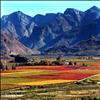
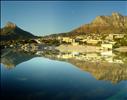
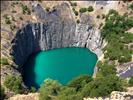
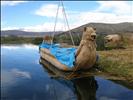
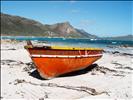
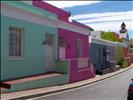
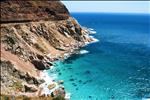

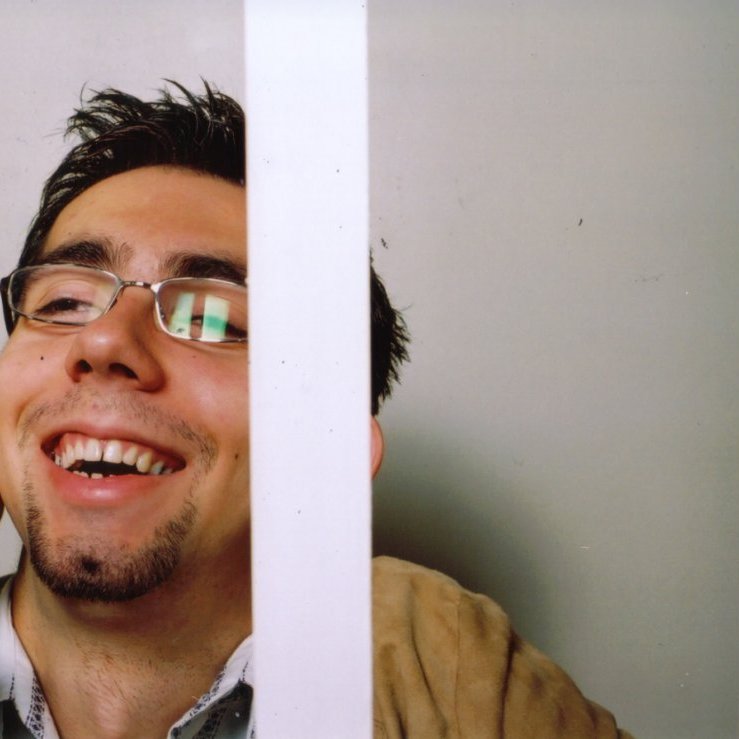



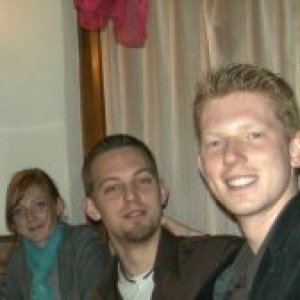
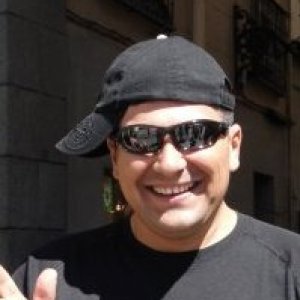

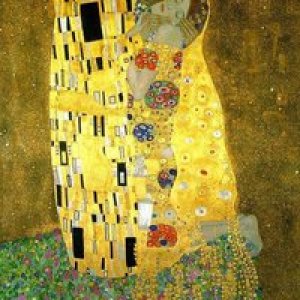
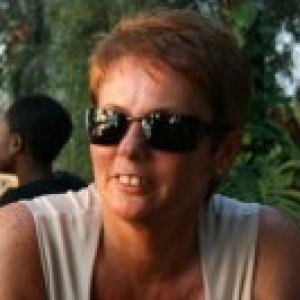

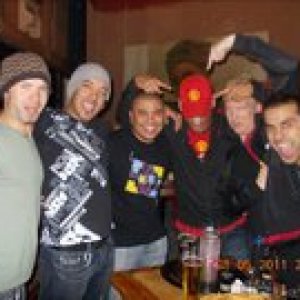
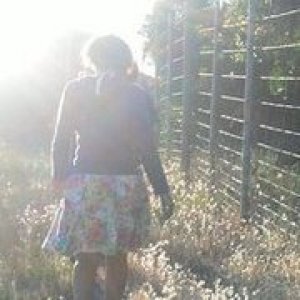









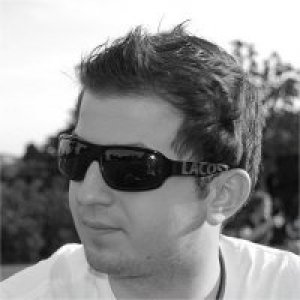



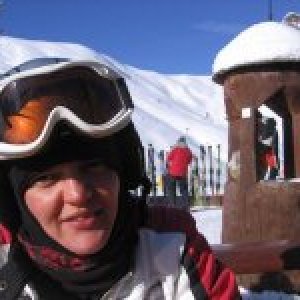

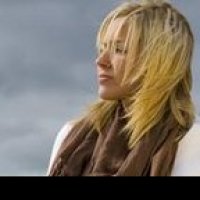

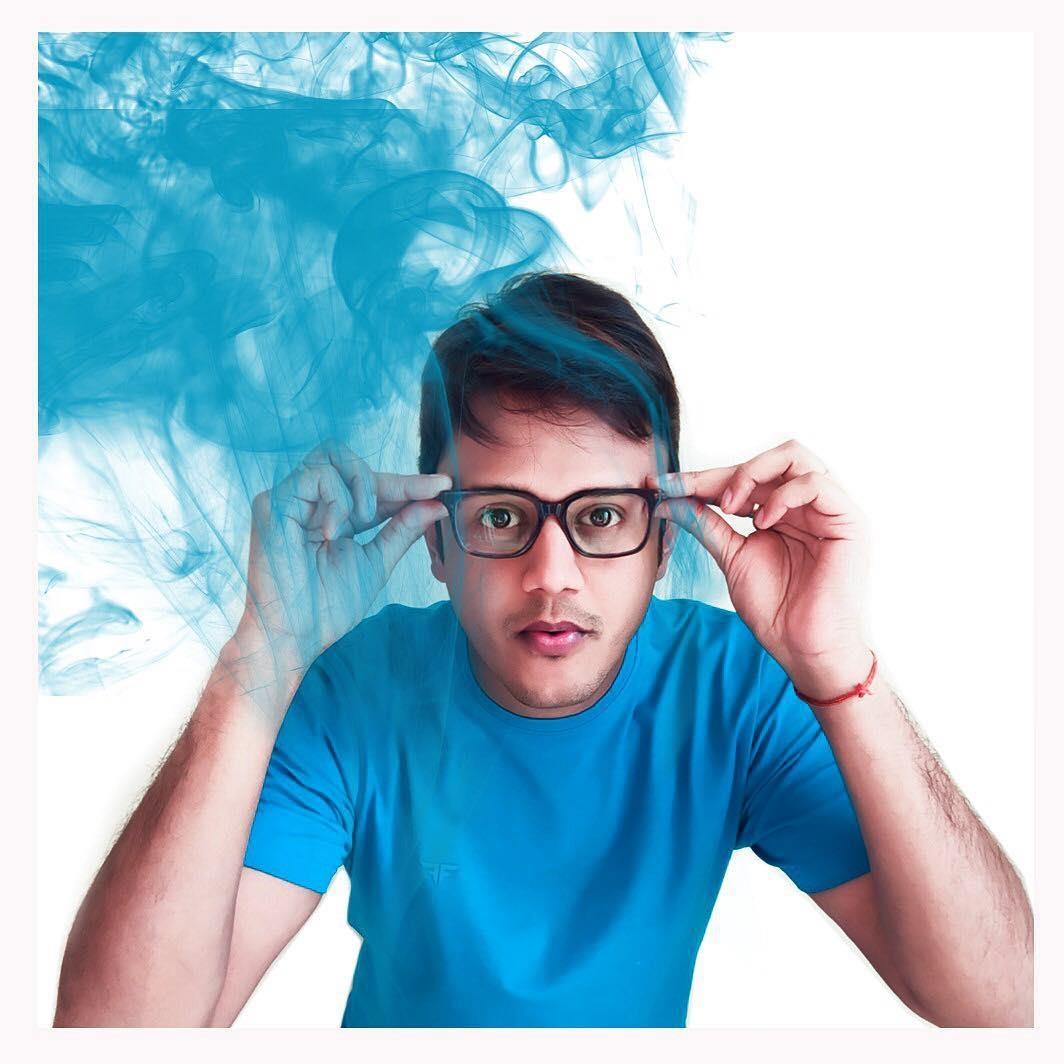
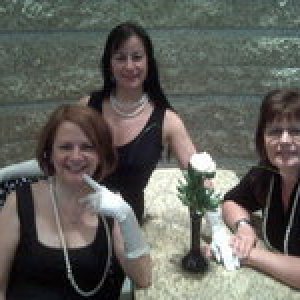

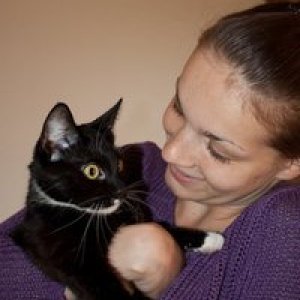

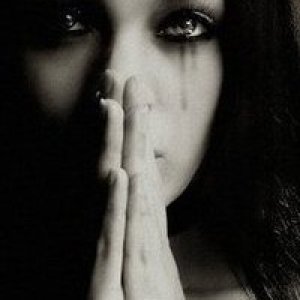

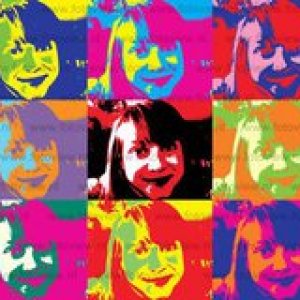



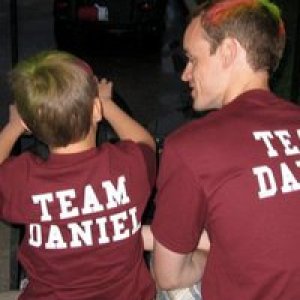


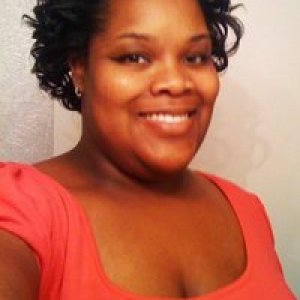

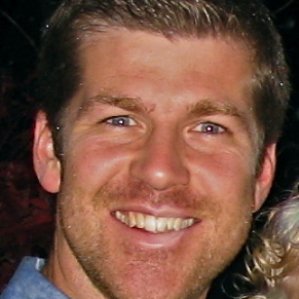
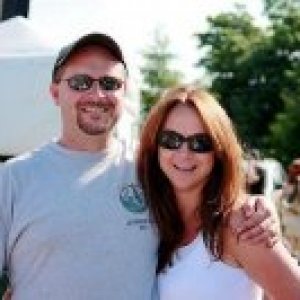
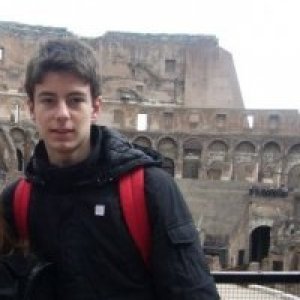
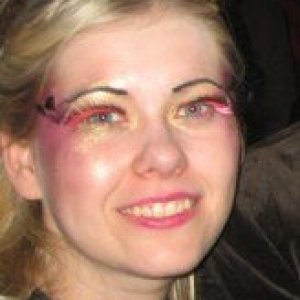
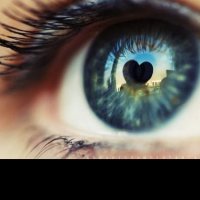
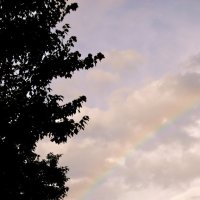
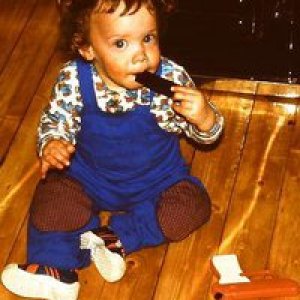
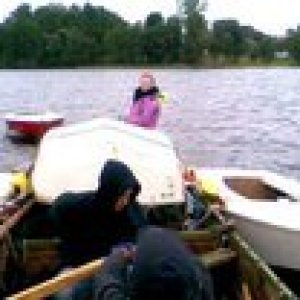
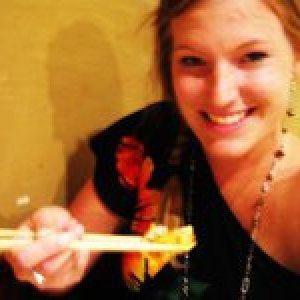


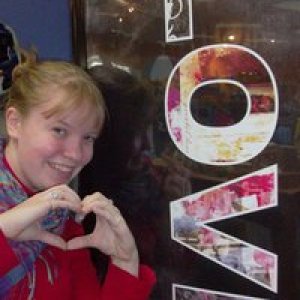







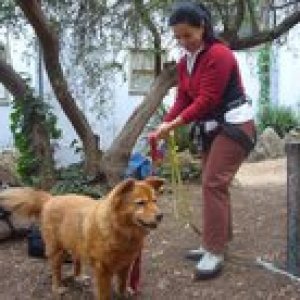
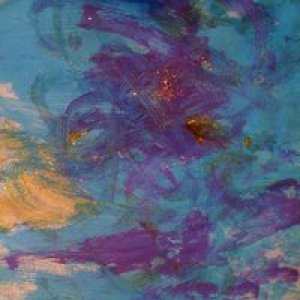
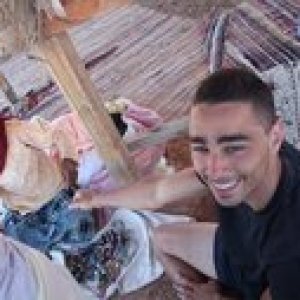
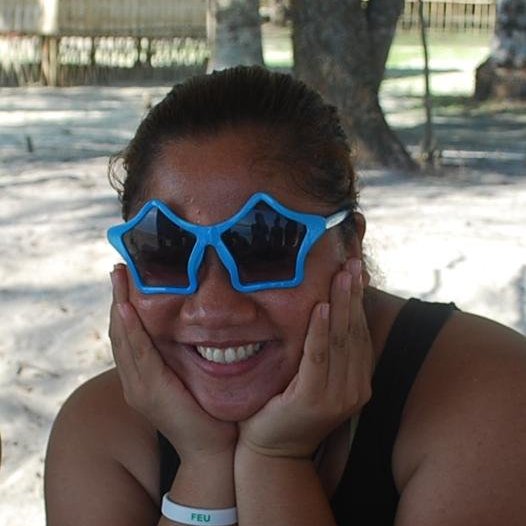
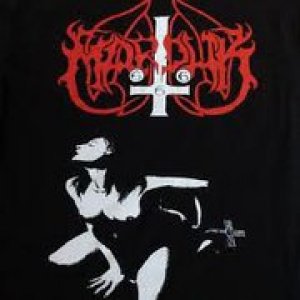


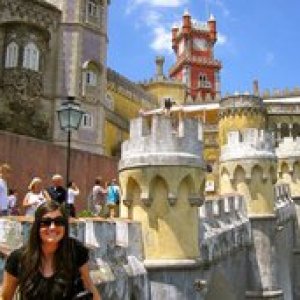


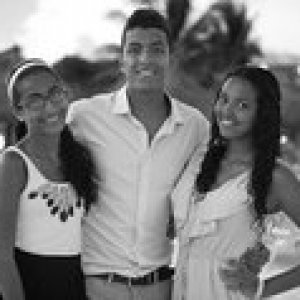


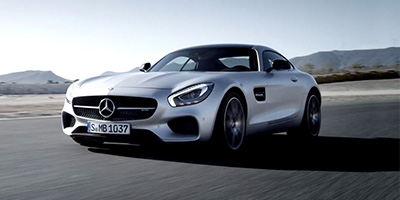

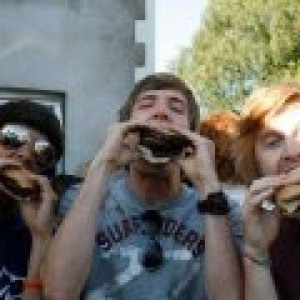


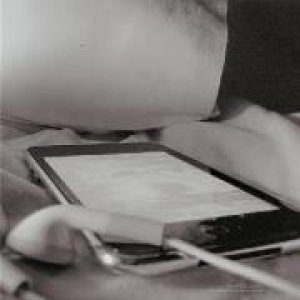


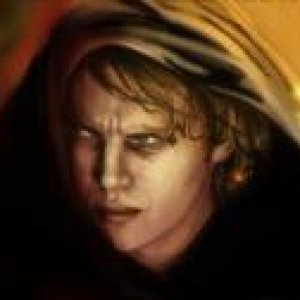
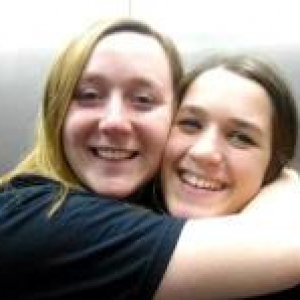

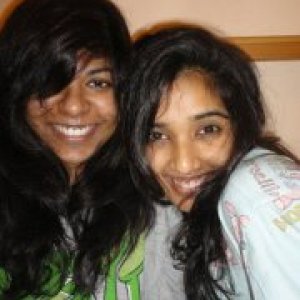
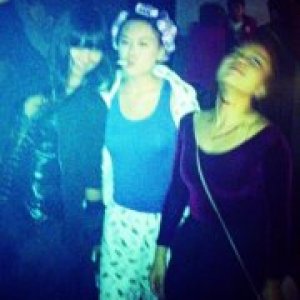



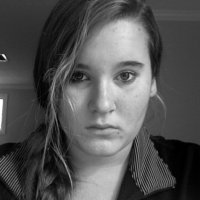






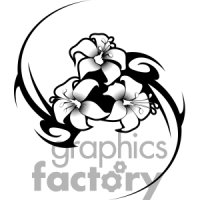
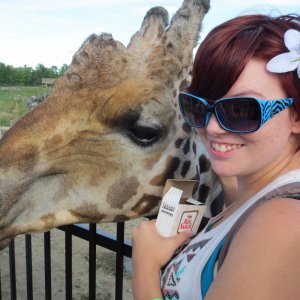



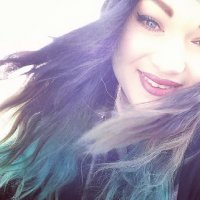
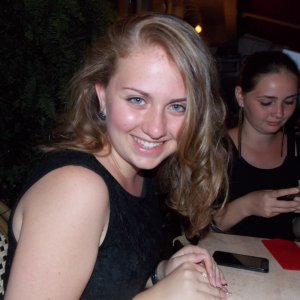
I liked
five star all round. i loved everything about South Africa, minus the crime. the place is stunning, nothing beats a drive towards Cape Town, the bush, the safari, Durban... just amazing.I disliked
crime rates